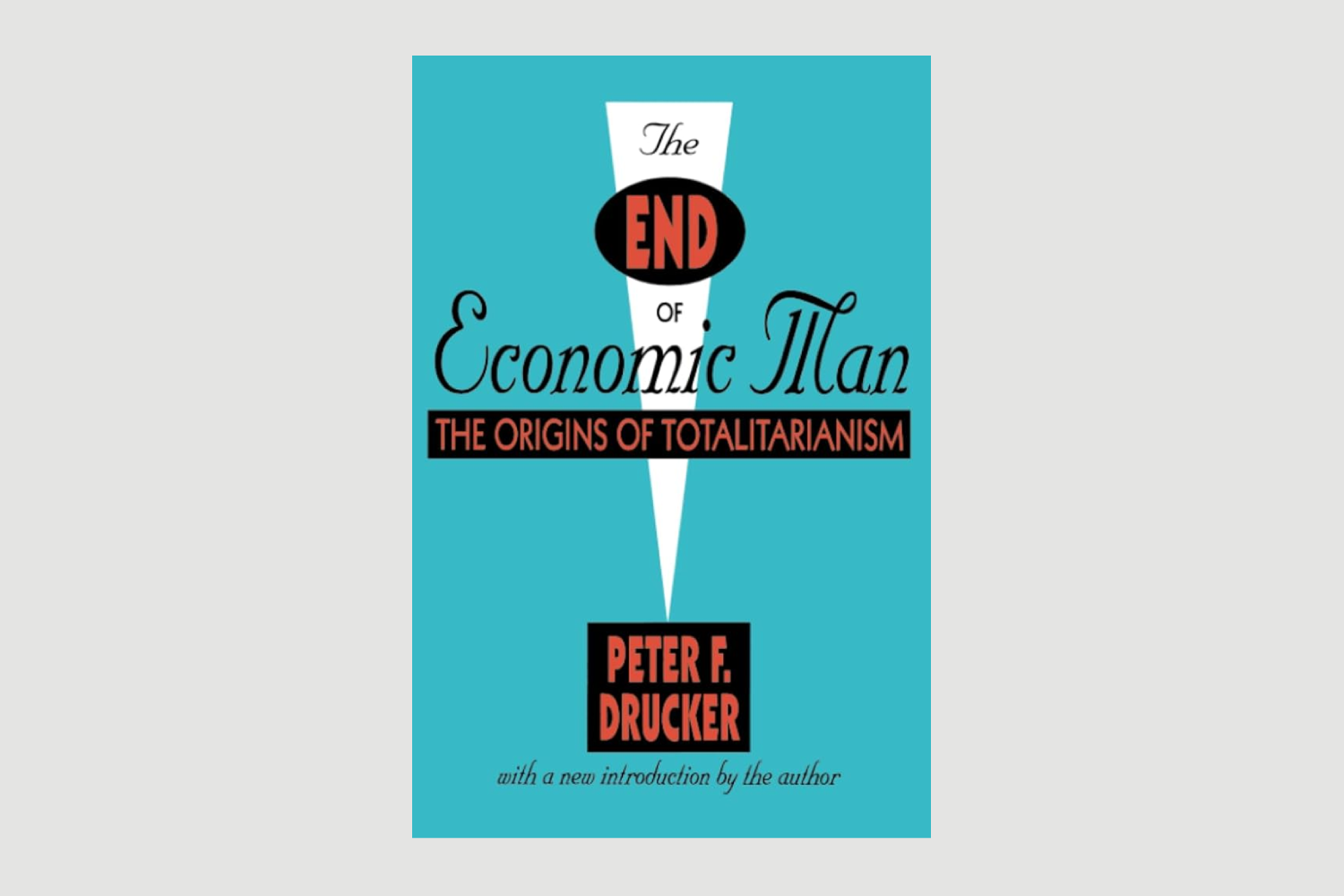The End of Economic Man
The Origins of Totalitarianism
Author: Peter F. Drucker, 1939
Book preface written by Drucker+ team.
Off the Shelf highlights the books of Peter F. Drucker. This week, we look at Drucker’s first book, “The End of Economic Man: The Origins of Totalitarianism,” published in 1939.
The book is an examination of the rise of fascism in Europe during the 1930s. In his introduction, Drucker describes it as a "political book," its purpose being "to strengthen the will to maintain freedom against the threat of its abandonment in favor of totalitarianism."
Drucker argues that the promise of liberalism and Adam Smith’s concept of the "economic man" — that people act according to rational self-interest — collapsed after the First World War. The destruction of faith in liberal economic and political systems made room for totalitarian ideologies like Nazism to fill the vacuum.
Reviewing the book for the Times Literary Supplement in May 1939, before his return to government, Winston Churchill wrote that Drucker "is one of those writers to whom almost anything can be forgiven because he not only has a mind of his own, but has the gift of starting other minds along a stimulating line of thought."
Decades after its publication, Drucker’s warnings about the fragility of society and the lure of authoritarianism, still resonate.
“If we decide that we have to abolish or curtail economic freedom as potentially demon-provoking, the danger is very great that we shall soon feel all freedom threatens to release the demonic forces.”
Official Book Synopsis on Amazon
In The End of Economic Man, long recognized as a cornerstone work, Peter F. Drucker explains and interprets fascism and Nazism as fundamental revolutions. In some ways, this book anticipated by more than a decade the existentialism that came to dominate the European political mood in the postwar period. Drucker provides a special addition to the massive literature on existentialism and alienation since World War II. The End of Economic Man is a social and political effort to explain the subjective consequences of the social upheavals caused by warfare.
Drucker concentrates on one specific historical event: the breakdown of the social and political structure of Europe which culminated in the rise of Nazi totalitarianism to mastery over Europe. He explains the tragedy of Europe as the loss of political faith, resulting from the political alienation of the European masses. The End of Economic Man is a book of great social import. It shows not only what might have helped the older generation avert the catastrophe of Nazism, but also how today's generation can prevent another such catastrophe. This work will be of special interest to political scientists, intellectual historians, and sociologists.
The book was singled out for praise on both sides of the Atlantic, and is considered by the author to be his most prescient effort in social theory.

